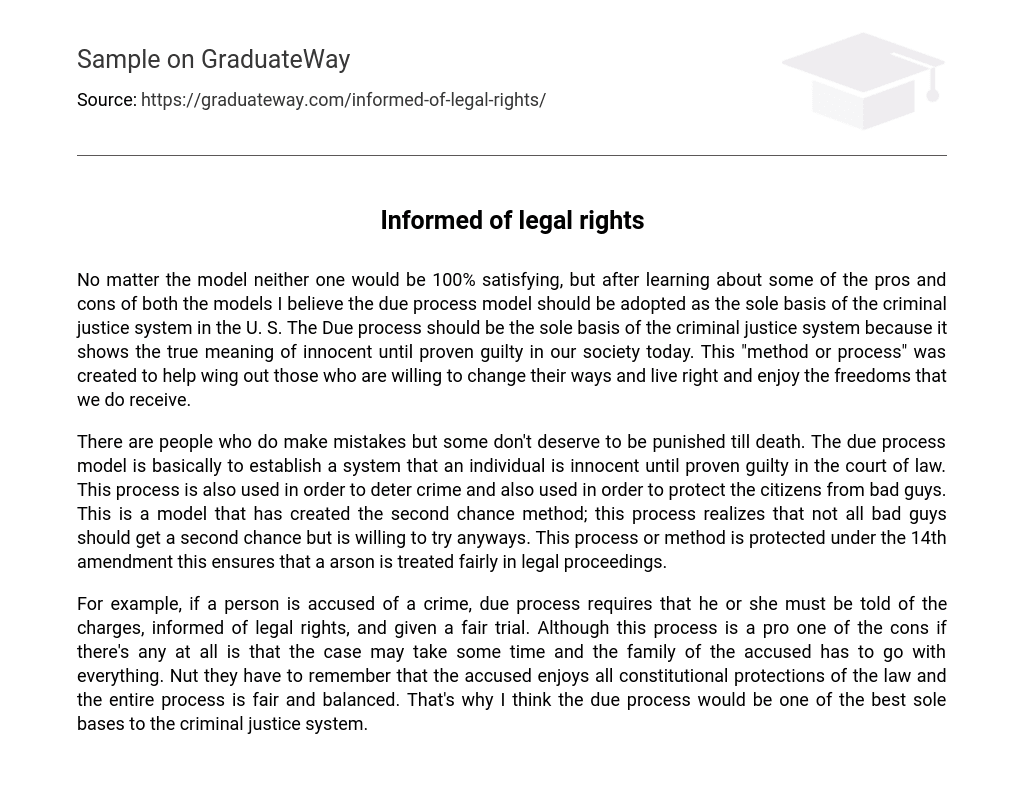Regardless of the chosen model, neither can fully meet the demands of the criminal justice system. However, after weighing the pros and cons of both models, I argue that only the due process model should be integrated into the U.S. criminal justice system. By exclusively adopting this approach, we acknowledge the importance of “innocent until proven guilty” in today’s society. This method aims to identify individuals committed to personal development and lawfulness, allowing them to fully embrace the liberties offered by our society.
The objective of the due process model is to create a legal system that assumes an individual’s innocence until proven guilty in court, taking into account that people are capable of making mistakes. Its goal is to prevent crime, safeguard citizens, and provide opportunities for rehabilitation, while acknowledging that not all offenders should be entitled to these benefits. The 14th amendment ensures equal treatment for individuals accused of arson during legal proceedings, thus protecting this approach.
Notification of charges, informing individuals about their legal rights, and ensuring a fair trial are crucial components of due process in the criminal justice system. Although these procedures may result in delays and inconvenience for the accused’s family, it is imperative to acknowledge that constitutional protections extend to all parties involved, guaranteeing fairness and impartiality. Ultimately, due process establishes a strong basis for the functioning of the criminal justice system.





